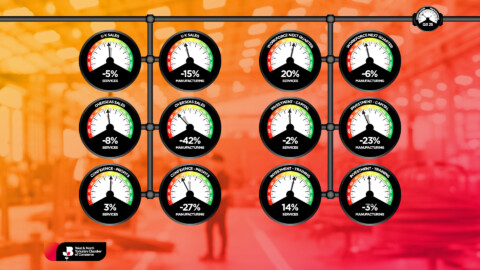Reflections on the future of offices
Having spent most of my career promoting office buildings to attract prospective tenants, or acquiring them for both large and small businesses, it’s been interesting and often frustrating to see so much speculation that in a post Covid world, the office might have had its day.
It is clear that the pandemic will have a long term influence on our use of and attitudes towards office buildings although clearly offices, as workplaces, have never stopped evolving and have in fact been adapting to changing working patterns for decades. The property industry is well used to change and disruption.
Offices have been around us for a very long time. As societies developed, the use of buildings for collections of likeminded individuals grew from the “official” work carried out in ancient Rome to the tea shops and coffee houses that established meeting points for collaboration in central London. The armed forces, banks and insurance companies in Victorian London all found strength in the collaboration and ideas that could be nurtured from a coming together of people with a common purpose.
Despite this, commentators are splitting the future of the office into two distinct camps – almost like opposing political parties with little common ground. On the one side, there are those that argue that the demise of the office couldn’t come a minute too soon. Covid-19 has benefited those that have jobs requiring little social interaction or the need to collaborate and when they do need to meet any form of digital coming together – email/phone/zoom or MS Teams – will suffice. There are people that are tired with their regular commute and those who seek to balance busy home lives with work that fits around other priorities so they can work at virtually any time of day and perhaps don’t need to interact when others might also be “at work”. Our working lives all benefit from some flexibility which means that these are all perfectly valid reasons, but equally, like all sides of a debate, it is also important to understand that other’s views might also be equally valid.
At the other side of the spectrum, there are those who crave collaboration, physical interaction and face to face meetings. Those with roles that perhaps require time negotiating and transacting, those responsible for managing a closely knit workforce driving a common purpose, and those that derive value from chance conversations at the coffee machine or over lunch. The importance of mental health awareness has increasingly risen to the top of the agenda; those that have regular face to face human interaction in the workplace may also be the first to spot if a colleague may need some support when tasks have become burdensome. None of this is easily conveyed over an electronic device.
An office is very much more than bricks and mortar. Office workplaces are, in effect, societies of likeminded people usually coming together towards some form of common goal, whether that is a social goal or for profit. Equally our city centres, that have developed over centuries, providing a hub for trade and commerce as well as for leisure purposes have been dramatically affected. We must all challenge ourselves in the longer term of what we expect of our city centres. A return to the office will also be crucial in terms of “kick starting” our cities again.
For many of us, work is a major part of our lives. We are often bonded together with colleagues almost as tightly as some of our wider family relationships, going back just 9 or 10 months we certainly saw more of some of our colleagues during working hours than our families! Younger colleagues absolutely depend on the collaboration and nurturing that they receive in the early years of their career.
Covid has stripped much of our interactions away and has blurred the lines between home and work life. The commute home, often a bane, is now being recognised as providing a useful time to “de-stress” and disengage from work allowing some distance between work and play, home and the office, colleagues and family.
So on balance, Covid has more recently absolutely defined that the office has a strong and resounding purpose in our working lives. Offices need to be occupied and to be frequently visited to maximise their effectiveness and the benefits we derive from them. The office environment has been around for a long time. Many of us had the benefit of working flexibly before it began, we have had laptops or home PC’s for 15 – 20 years or more, we have already evolved. Imagine trying to have had a similar lockdown 25 years back when the best mobile phone was a Nokia brick?
In truth the office, the amenities, the IT we use and our employers have encouraged the adaptations we have had to make and experienced this year, but of late this forced working from home has reiterated that many of us need to be connected to our work through more than just a phone or a PC. The computer screen isn’t enough on its own. The office will come bouncing back and it will be back quicker and more resoundingly than many expect.
Jeff Pearey is a member of the Leeds Chamber Property Forum Steering Group and is the head of JLL’s Leeds office and is also their head of UK regional office agency covering 9 locations. Jeff has over 30 years’ experience in the office sector.







